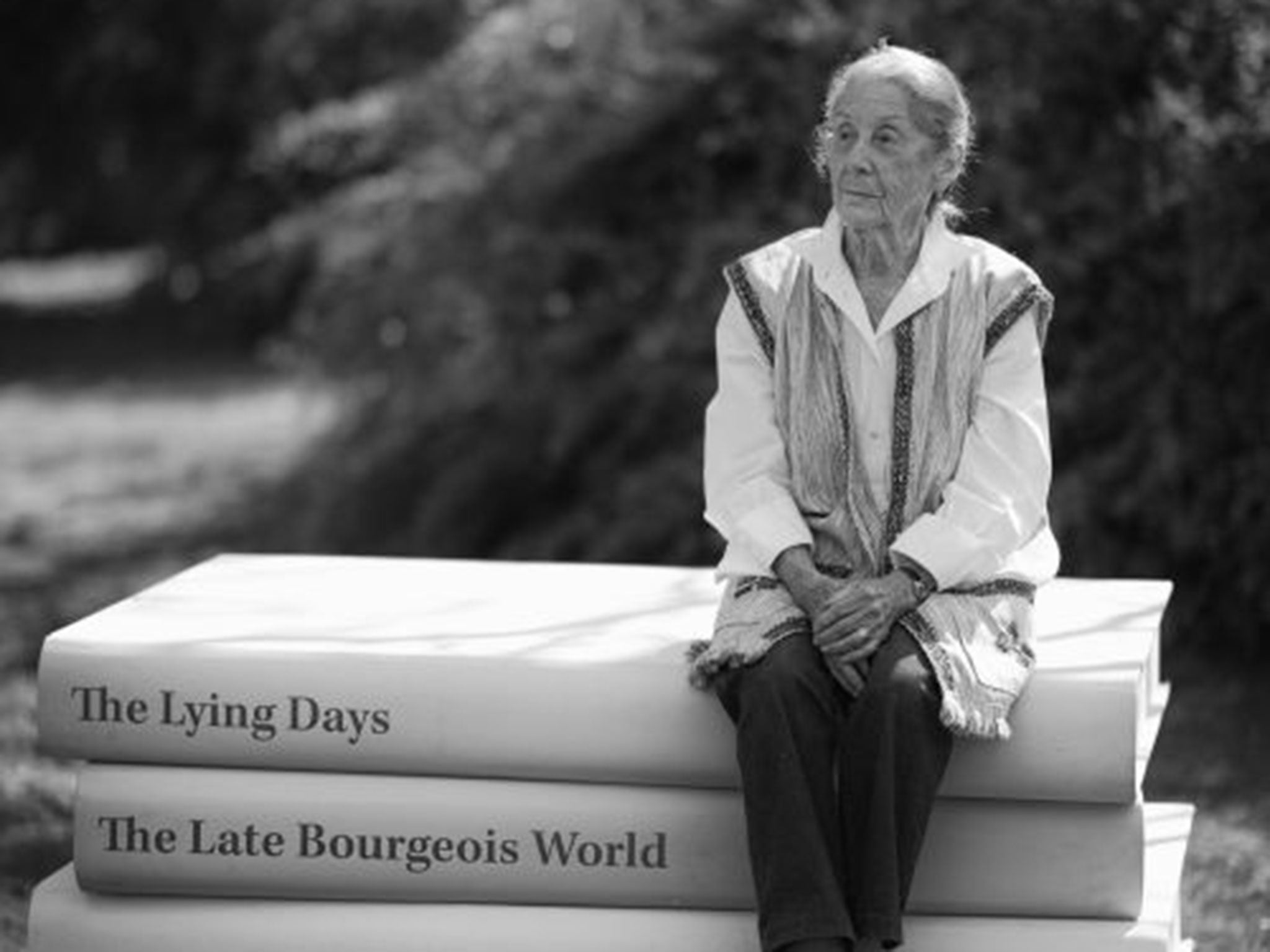Nadine Gordimer appreciation: She wrote the social history of our nation

Your support helps us to tell the story
From reproductive rights to climate change to Big Tech, The Independent is on the ground when the story is developing. Whether it's investigating the financials of Elon Musk's pro-Trump PAC or producing our latest documentary, 'The A Word', which shines a light on the American women fighting for reproductive rights, we know how important it is to parse out the facts from the messaging.
At such a critical moment in US history, we need reporters on the ground. Your donation allows us to keep sending journalists to speak to both sides of the story.
The Independent is trusted by Americans across the entire political spectrum. And unlike many other quality news outlets, we choose not to lock Americans out of our reporting and analysis with paywalls. We believe quality journalism should be available to everyone, paid for by those who can afford it.
Your support makes all the difference.Nadine Gordimer will be remembered in South Africa and abroad as a towering literary figure and powerful voice for justice and freedom of expression.
Although by her own admission she was not a “political person” by nature, she had a profound impact on political life.
Through her writing and choices of subject she strengthened the forces of resistance to apartheid and continued to speak out against any form of official censorship.
She inspired Nelson Mandela and was one of the first people whom he asked to see after his release from 27 years in jail in February 1990.
Gordimer, who won the Nobel Prize in literature in 1991, wrote 15 novels, three of which were banned under the apartheid government’s censorship laws.
One of her books, briefly banned, was Burger’s Daughter, which tells the story of a woman’s search for her identity after her father, a political revolutionary, dies in jail.
The book was inspired by the life and example of the legendary Bram Fischer, an Afrikaner who turned his back on his own people to devote his life to the liberation of black South Africans. He was the brilliant lawyer who led the legal team that saved Nelson Mandela and his colleagues in the seminal Rivonia trial of 1964.
Gordimer’s novels, non-fiction, essays and short stories were translated into 40 languages and for most white South Africans during the apartheid years her novels were uncomfortable reading; her South African audience was dwarfed by her vast international following.
Gordimer, who secretly joined the ANC following the Sharpeville massacre in 1960, was active in the underground, driving activists under threat to the border and assisting victims of apartheid in other ways.
The themes of her books focused on the various stages of apartheid but her writing was itself not overly political. Her priority was always to enter the world of others with great empathy and insight and take readers on a subjective journey.
The patchwork quilt that her books formed over the years is like a social and political history of the country under apartheid and beyond.
John Battersby was the editor of ‘The Sunday Independent’ in South Africa from 1996 to 2001
Join our commenting forum
Join thought-provoking conversations, follow other Independent readers and see their replies
Comments